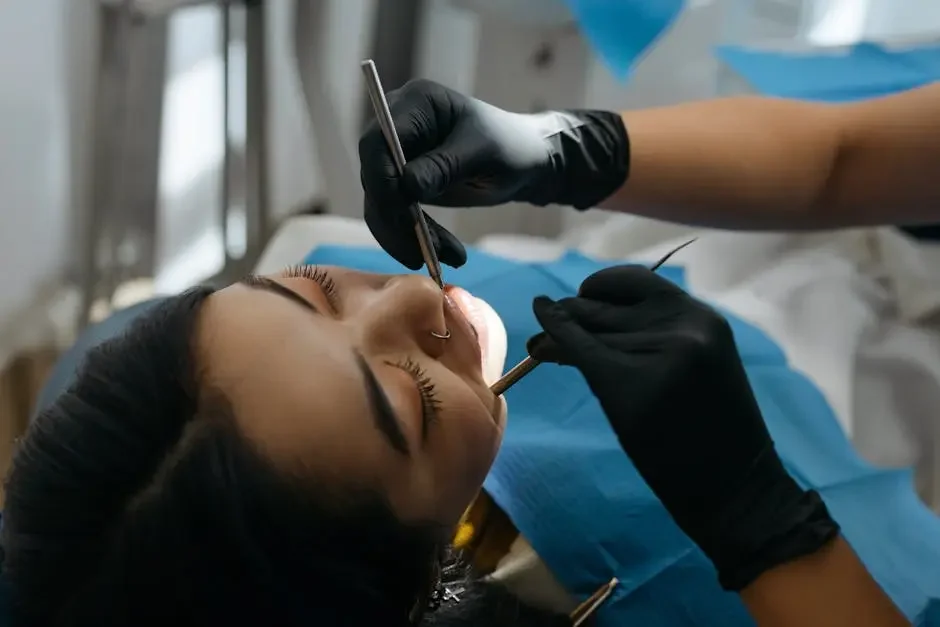How Does Personalized Dental Care Improve Oral Health?
Personalized dental care is becoming increasingly important as we learn more about its impacts on oral health. Unlike standard treatments, personalized care tailors dental practices to fit individual needs, allowing for better outcomes and higher patient satisfaction. In this FAQ, we'll explore the various ways personalized dental care can enhance your oral health.
Understanding Personalized Dental Care
Personalized dental care revolves around customizing treatment to fit individual patient profiles, including their medical history, preferences, and specific oral health conditions.
At its core, personalized dental care means that no two treatment plans are exactly alike. Each patient is unique, from their genetics to their lifestyle, which is why a one-size-fits-all approach isn't effective in dentistry.
This approach not only leads to better oral health outcomes but also fosters a stronger relationship between the patient and the dental team. When treatments are tailored to a person's specific needs, it becomes a partnership, where both sides are motivated to achieve the best possible results.
Benefits of Tailored Treatment Plans
Tailored treatment plans can address unique dental challenges more effectively, leading to improved results and fewer complications.
For instance, if a patient has a history of gum disease, a personalized care plan will likely include more frequent cleanings and specific home care instructions aimed at preventing recurrences. This type of proactive approach can save patients time, money, and discomfort in the long run.
Moreover, the psychological aspect of personalized care plays a significant role. Patients who see that their specific concerns are being addressed often feel a greater sense of control and responsibility for their oral health. This empowerment can lead to better habits outside the dental office.
Ultimately, the benefit of having a personalized approach is that it respects the individuality of each patient, making them feel valued and understood. This can encourage regular visits and long-term commitment to maintaining oral health.
Enhancing Preventive Care
Personalized care emphasizes prevention, such as customized oral hygiene instructions, regular monitoring, and early detection strategies.
By focusing on each patient's specific risk factors, dentists can devise preventive measures that truly resonate with the individual's lifestyle and habits. For example, a patient who frequently consumes acidic foods might receive strong advice on neutralizing those effects through strategic oral care.
Additionally, personalized reminders for check-ups and cleanings can enhance a patient's motivation to adhere to preventive care routines. When patients know that their dentist is keeping track of their unique needs, it fosters a sense of accountability.
In essence, personalized preventive care not only helps avoid serious dental issues but also educates patients on how to maintain long-term oral health, leading to healthier smiles and less stress in the treatment chair.
Improving Patient Engagement
When patients receive personalized care, they often feel more involved in their treatment, leading to higher compliance and better health outcomes.
This increased engagement typically arises from the personalized dialogues that take place between the patient and dental professionals. By discussing tailored treatment options and listening to patient feedback, a collaborative environment is fostered.
Furthermore, when patients can see their own data and understand how their individualized plan addresses their needs, they're much more likely to follow through with recommendations. This can include everything from attending regular check-ups to adhering to prescribed oral hygiene routines at home.
Ultimately, greater engagement means less anxiety about dental visits, as patients feel that their voices are heard and their individual concerns are addressed. This, in turn, can transform their entire dental experience.
The Role of Technology in Personalized Care
Advancements in dental technology, like digital imaging and AI, enable more precise diagnostics and treatment plans tailored to individual needs.
Technologies such as 3D imaging allow dentists to see a detailed view of a patient's dental structure, which can inform more effective treatment strategies. This level of insight wasn't available in traditional practices, and it empowers dentists to provide personalized solutions that are truly grounded in each patient's unique anatomy.
Moreover, with the integration of AI into dental care, practitioners can analyze patient data more efficiently, predicting potential oral health issues before they become significant concerns. This proactive use of technology ensures that personalized plans are not only tailored for today but also consider future needs.
As technology continues to evolve, the possibilities for personalized dental care will only expand, making it easier than ever to cater to individual patient needs. This reflects a broader trend in healthcare where personalization is key to achieving better health outcomes.
Embrace Personalized Dental Care for Better Oral Health
By prioritizing personalized dental care, you not only invest in your oral health but also enhance your overall well-being. Such tailored approaches are leading to better preventive measures, improved treatments, and even increased comfort during visits. If you haven't considered it yet, it's time to speak with your dentist about how personalized care can benefit you.
